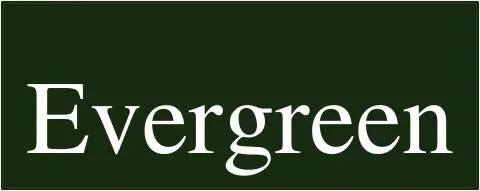WHAT FORE MEMBERS ARE SAYING
" What is currently considered as constituting an alternative or a hedge fund? What do these entities serve as alternatives to, and against what risks do they act as hedges? "
MEMBER LINK
Community | Education | Legacy
FAMILY OFFICE REAL ESTATE INSTITUTE BLOG
The Latest on Family Offices and Real Estate, At the Family Office Real Estate Institute, our commitment to advancing knowledge and expertise in real estate management within family offices extends beyond the classroom.
MEMBER LINK
Community | Education | Legacy

What is 1031 Exchange: Understanding 1031 Exchanges Rules Step by Step
A 1031 exchange, a 'like-kind exchange' or 'tax-deferred exchanges,' is an important IRS tax code that allows investors to defer capital gains taxes when they sell certain types of investment properties.
This type of exchange allows investors to reinvest their profits into another real estate property without having to pay capital gains taxes on the sale of the original property. By taking advantage of a 1031 exchange, real estate investors can defer their tax liabilities and take what would have been taxable profits, and reinvest it into additional real estate holdings.
This comprehensive guide will discuss the rules and regulations surrounding a 1031 exchange, including eligibility criteria, the types of properties that qualify, and the role of a qualified intermediary.
What is a 1031 Exchange?
So what is a 1031 exchange? A 1031 exchange is an IRS tax code that allows investors to defer capital gains taxes when selling certain investment properties.
This type of exchange allows investors to reinvest their profits into another real estate property without having to pay capital gains tax on the sale of the original property. By taking advantage of 1031 exchanges, investors can defer their tax liabilities and take what would have been taxable profits, and reinvest it into additional real estate holdings.
1031 Exchange Rules
Investors must follow several rules and regulations to qualify for an exchange. These rules include eligibility criteria, the types of properties that qualify, the timeline for identifying and acquiring replacement properties, the role of a qualified intermediary, and tax implications.
To qualify for a deferred exchange, the investor must meet certain criteria set forth by the IRS. The exchanged properties must be business or investment property and be of "like-kind" (i.e., similar in use, quality, and character). The exchange must be completed within 180 days of selling the relinquished property.
Furthermore, all proceeds from the sale of the relinquished property must be transferred to a qualified middleman (an intermediary or "accommodator") before purchasing the replacement property. Finally, savvy real estate investors must also identify the property they intend to purchase within 45 days of the sale of the relinquished property. These rules must be followed for investors to take advantage of a 1031 exchange and defer their capital gains taxes.
That being said, there are some exceptions to what properties can qualify for a 1031 exchange. For example, investors cannot exchange certain property types, such as inventory, stocks, bonds, and notes.
In addition, a 1031 deferral must involve what are known as "like-kind" properties or properties that are similar in nature and character. For instance, an investor may choose to exchange a single-family rental property for another single-family rental but not for a strip mall.
Regarding the actual exchange process, investors are typically given 45 days from the sale of their relinquished property to identify potential replacement properties and an additional 180 days to complete the purchase and transfer of ownership. Though 1031 exchanges can be complex and time-consuming, they allow investors to defer capital gains taxes on their investments. Furthermore, 1031 exchanges can be an effective tool for increasing the size of a portfolio over time and accumulating wealth.
When considering a deferred exchange, it is important to adhere to all of the IRS rules to avoid penalties or other issues that may arise. Additionally, investors should consult with a qualified professional or real estate broker to ensure that their 1031 exchange meets IRS guidelines.
The key 1031 exchange rules are as follows:
• Both properties must be used for investment or business purposes
• The replacement property must be of equal or greater value than the original property
• All proceeds from the sale of the original property must be used to purchase the replacement property
• The investor will have 45 days from the sale of the original property to identify potential replacement properties
• The exchange must be completed within 180 days of the sale of the original property.
Eligibility Criteria for a Deferred Exchange
To qualify for a 1031 exchange, the sold property must have been held for investment or business purposes. Additionally, the business property must be exchanged for another property held for investment or business purposes.
There are restrictions on the personal use of a new property in a deferred exchange, and the 45-day identification period and the 180-day exchange period must be adhered to.
Types of Properties That Qualify for a 1031 Exchange
Real property, such as raw land and buildings, and personal property, can qualify for a 1031 exchange. The property being exchanged must be like-kind, meaning it must be of a similar nature or character. However, there are restrictions on exchanging foreign property.
Identifying and Acquiring Replacement Properties
The 45-day identification and 180-day exchange periods are important timelines to follow in a 1031 exchange. During the 45-day identification period, the investor must identify potential replacement properties.
The 3-property and 200% rules can help investors navigate the identification process. The investor must acquire the replacement property within the 180-day exchange period. Working with a qualified intermediary is important to ensure compliance with these rules.
The Role of a Qualified Intermediary in a 1031 Exchange
A qualified intermediary is a third-party facilitator who helps investors navigate the 1031 exchange process. They hold the proceeds from the sale of the relinquished property and use them to acquire the replacement property. It is important to choose a qualified intermediary experienced and knowledgeable in the 1031 exchange process.
Tax Implications of a Deferred Exchange
1031 exchange is the tax deferral of capital gains taxes. However, investors must be aware of the tax implications of the transaction. The tax basis for the replacement property is calculated based on the adjusted basis of the relinquished property. Depreciation recapture is another tax implication that investors must consider. State-level tax implications can also vary, so consult with a tax professional is important.
By following these rules, investors can take advantage of a 1031 exchange and defer capital gains taxes associated with selling their investment property. This can be a valuable tool for investors looking to maximize their returns from real estate investments.
It is important to consult an experienced tax professional before embarking on a 1031 exchange, as there may be additional rules and regulations that must be followed for the exchange to qualify.
Additionally, utilizing the services of a qualified intermediary experienced in 1031 exchanges is often helpful. A qualified intermediary will be able to assist with the exchange process and ensure that all rules are followed correctly so that the investor can take advantage of the benefits of a 1031 exchange.
Benefits of a 1031 Exchange
Now that we've covered the 1031 exchange rules let's take a look at some of the benefits of completing a 1031 exchange:
1. Tax-Deferred Exchange:
One of the most significant benefits of a 1031 exchange is the ability to defer taxes. By completing an exchange, taxpayers can defer paying capital gains taxes on the sale of their relinquished property until they sell the replacement property.
2. Ability to Defer Capital Gains Tax:
The ability to defer capital gains taxes can be a significant advantage for taxpayers looking to reinvest their profits in other properties or investments.
3. Opportunity to Leverage Investments:
A 1031 exchange can also allow investors to leverage their investments. By deferring taxes, investors can reinvest the full proceeds from the sale of their relinquished property into a replacement property, potentially increasing their overall return on investment.
FAQs
What types of properties are eligible for a 1031 exchange?
Any property held for investment or business purposes may be eligible for a 1031 exchange, including rental properties, commercial properties, vacant land, and certain types of personal property. However, the properties must be like-kind, meaning they are of the same nature or character, even if they differ in quality or grade.
How do I comply with the 45-day identification period in a 1031 exchange?
The 45-day identification period refers to the time frame in which you must identify potential replacement properties after selling your existing property.
To comply with this rule, you must provide your qualified intermediary with a written list of potential replacement properties before the 45-day deadline. The list must be specific and unambiguous, and you cannot add or remove properties from the list after the deadline has passed.
Q: What is the difference between a delayed exchange and a reverse exchange?
A delayed exchange is the most common type of 1031 exchange, where the taxpayer sells their old property first and then identifies and acquires a replacement property within the set timeline. In contrast, a reverse exchange involves acquiring the replacement property first before selling the old property.
This type of exchange is less common and more complicated since it requires the use of an exchange accommodation titleholder (EAT) to hold the property until the old property is sold. Both types of exchanges have specific rules and regulations that must be followed to qualify for tax deferral. It's important to work with a qualified intermediary and consult with a tax professional to ensure compliance with all exchange requirements.
What is depreciation recapture, and how does it apply to a 1031 exchange?
Depreciation recapture is a tax provision that requires you to pay taxes on the amount of depreciation claimed on the property you are selling. If you have previously claimed depreciation on the property, you may be subject to recapture taxes on the sale. However, you can still use a 1031 exchange to defer the capital gains taxes on the sale, which can help offset the recapture taxes.
Can I exchange my primary residence under a 1031 exchange?
No, a primary residence does not qualify for a 1031 exchange. Only property held for investment or business purposes can be exchanged. However, there is a way to partially defer capital gains taxes on the sale of a primary residence through a different provision of the internal revenue code.
Under this provision, homeowners can exclude up to $250,000 of capital gains (or up to $500,000 for married couples filing jointly) from the sale of their primary residence if they meet certain criteria, such as owning and living in the home for at least two of the past five years.
Can I use a 1031 exchange to exchange one property for multiple replacement properties?
Yes, it is possible to use a 1031 exchange to exchange one property for multiple replacement properties, as long as certain rules are followed. The three-property rule states that the exchanger can identify up to three potential replacement properties regardless of their value or any number of replacement properties as long as their total fair market value does not exceed 200% of the value of the relinquished property.
It is important to note that the exchanger must ultimately acquire one or more of the identified replacement properties within the 180-day exchange period in order to complete the exchange.
Conclusion
Understanding what is a 1031 exchange is crucial for maximizing your benefits and avoiding any costly mistakes. By adhering to the property qualification, timing, like-kind property, purchase price, use and intent, and exchange process requirements, you can ensure a successful exchange and take advantage of the many benefits a 1031 exchange offers.
Working with a qualified intermediary is key to navigating the exchange process and avoiding pitfalls. A 1031 exchange can be an excellent strategy for building wealth and achieving your financial goals by deferring taxes, exchange funds,reinvesting profits, and leveraging investments.
The Family Office Real Estate Institute (“FORE”) or )the “FORE Institute”) is not affiliated in any way with the University of Denver. Nor are any FORE Institute programs or classes affiliated with the University of Denver. The FORE Institute only uses it facilities for its classes, programs, and events. The University of Denver are the various schools within the University do not sponsor or endorse the FORE Institute, any of its information, products, classes, events, or comments. The FORE Institute declares no affiliation, sponsorship, or partnership with the University of Denver. The FORE Institute stands independently as a for-profit business.
© 2025 Family Office Real Estate Institute











